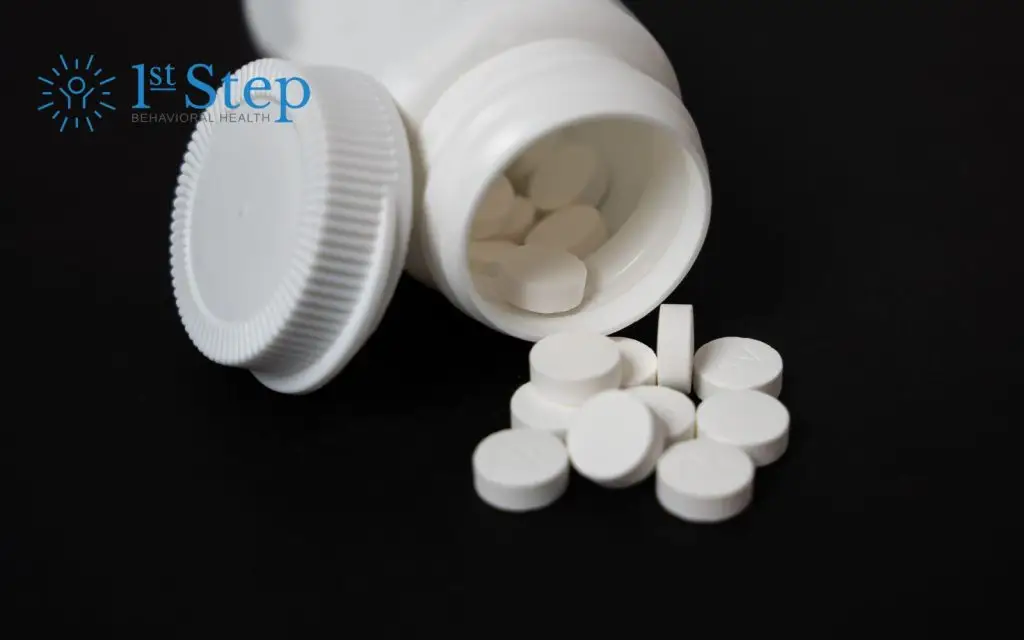The United States is in the midst of an opioid use epidemic. Research from the Centers for Disease Control and Prevention (CDC) shows that an average of 136 people lose their lives to an overdose involving opioids each day.
Prescription painkiller abuse is a common route to opioid addiction. Many prescription opioid drugs have a high risk of abuse, dependence, and addiction. People taking drugs with a high potential for abuse can develop signs of addiction after using them for a short period. People may also develop dependence when using them as prescribed.
Percocet is a commonly prescribed opioid pain reliever. People taking Percocet must be aware of the risk of addiction and seek treatment as soon as they recognize the signs.
All Percocet use has the potential for serious complications, including addiction. Snorting Percocet has additional risks.
This article will explore the risks of snorting Percocet. You will learn:
- How Percocet works
- How Percocet addiction develops
- The dangers of snorting Percocet
- What to expect from Percocet addiction treatment
- Where to find comprehensive addiction treatment and support
If you or someone you love struggles with Percocet abuse or addiction, you are not alone. Comprehensive treatment and support are available at First Step Behavioral. Contact us today to learn more about our treatment and recovery programs. You can also reach out with questions or to schedule an intake appointment.
What is Percocet?
Percocet is a potent prescription painkiller. It contains oxycodone (an opioid) and acetaminophen (the active ingredient in Tylenol).
Doctors may prescribe Percocet to patients experiencing pain after surgery or injury. People may also take it to manage chronic pain. The Drug Enforcement Agency (DEA) classifies Percocet as a Schedule II drug. This means that it has a medical purpose but an increased risk of misuse and addiction.
How Does Opioid Addiction Occur?
Doctors typically prescribe opioids for short periods to decrease the risk of addiction. However, people may still experience signs of addiction (withdrawal symptoms, cravings, tolerance) when using it for short periods as prescribed.
Opioids like oxycodone (an ingredient in Percocet) work by binding to brain receptors related to pain control, pleasure, and emotional regulation. People may experience euphoric effects or relaxation while taking Percocet. These pleasurable side effects may lead to misusing Percocet and becoming addicted to it.
Percocet misuse includes:
- Using a larger dose of Percocet than prescribed
- Taking Percocet more often than prescribed
- Using Percocet for a longer period than prescribed
- Using Percocet recreationally (without a prescription)
Another form of Percocet misuse involves ingesting Percocet differently than prescribed, such as crushing and snorting the pills. Misusing Percocet in any way is dangerous, but snorting it can lead to a more intense high and an increased risk of addiction.
Misusing Percocet can lead to tolerance, meaning people need to use more to get the drug’s desirable effects. It can also lead to physical dependence and an increased risk of overdose.
The Dangers of Snorting Percocet
All Percocet abuse is dangerous. Oxycodone, the opioid in Percocet, slows central nervous system (CNS) activity. Snorting allows more of the opioid to hit the bloodstream at the same time, putting people at risk of overdose.
When people snort Percocet, the drug’s effects are amplified. Snorting this pain relief drug can cause potentially life-threatening complications, including:
- Dangerous blood pressure changes
- Fever
- Anxiety
- Mental status changes, including confusion
- Sleep apnea
- Itchy skin
- Abdominal pain
- Severe headaches
- Nausea and vomiting
- Constipation
People may also do dangerous things while abusing Percocet. They may drive while under the influence or do illegal things to get more Percocet. They may injure themselves or others while under the influence of this potent opioid.
Finally, snorting Percocet can lead to severe damage to the sinuses and nasal passages. People may develop:
- Chronic sinus infections
- Structural damage in the sinuses and facial structure
- Long-term lung infections
- Pneumonia
- Bronchial asthma
People often use straws, rolled-up dollar bills, or other dirty instruments to snort Percocet. This can increase the risk of infection and diseases. :
What to Expect From Percocet Addiction Treatment
Percocet abuse and addiction can change a person’s behaviors, appearance, and emotions. Recognizing the signs of Percocet abuse can help you seek treatment as quickly as possible.
Some of the signs of Percocet abuse include:
- Finishing a prescription early
- Doctor shopping (having multiple prescriptions for Percocet)
- Physical symptoms like dilated pupils, watery eyes, and excessive yawning
People who abuse Percocet may neglect their hygiene, responsibilities, and hobbies. They may isolate and have changes in their sleep or eating patterns. Recognizing these symptoms can help you seek the support and treatment needed.
Treatment for Percocet addiction typically begins with a medically-supported detox program, including:
- Medications to reduce the risk of relapse
- Mental health support
- Holistic therapies for comfort
- A secure, supportive environment
Having round-the-clock access to treatment and support can help people manage withdrawal safely. Then, people must continue treatment that addresses the underlying roots of their substance abuse. This may include:
- Behavioral therapies
- Individual, group, and family therapy
- Mental health care
- Medication management
- Relapse prevention education
- Aftercare planning
Holistic therapies like exercise, mindfulness, nutrition support, and more
Overcoming opioid addiction can be challenging, but having the right support and treatment can help.
Find a Treatment Center Now
If you or someone you love struggles with Percocet abuse, you are not alone. Contact the First Step Behavioral Health specialists to learn more about our treatment and support programs or to schedule an intake assessment.
References:
- Centers for Disease Control and Prevention (CDC): Drug Overdose Deaths in the United States, 2002–2022
- U.S. Food and Drug Administration (FDA): Medication Label for Percocet
- National Institute of Health (NIH): Oxycodone
- NIH: Characterizing Pathways of Non-oral Prescription Stimulant Non-medical Use Among Adults Recruited From Reddit
Jump to a Section
Call (855) 425-4846
